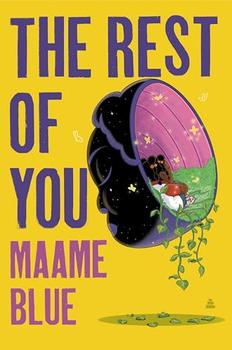Summary | Excerpt | Reviews | Readalikes | Genres & Themes | Author Bio

James Surowiecki, the business columnist for Slate magazine, reviewing Grove's book, neatly summarized what Schumpeter and Grove have in common, which is the essence of globalization economics. It is the notion that: "Innovation replaces tradition. The present--or perhaps the future--replaces the past. Nothing matters so much as what will come next, and what will come next can only arrive if what is here now gets overturned. While this makes the system a terrific place for innovation, it makes it a difficult place to live, since most people prefer some measure of security about the future to a life lived in almost constant uncertainty ... We are not forced to re-create our relationships with those closest to us on a regular basis. And yet that's precisely what Schumpeter, and Grove after him, suggest is necessary to prosper [today]."
Indeed, if the Cold War were a sport, it would be sumo wrestling, says Johns Hopkins University foreign affairs professor Michael Mandelbaum. "It would be two big fat guys in a ring, with all sorts of posturing and rituals and stomping of feet, but actually very little contact, until the end of the match, when there is a brief moment of shoving and the loser gets pushed out of the ring, but nobody gets killed."
By contrast, if globalization were a sport, it would be the 100-meter dash, over and over and over. And no matter how many times you win, you have to race again the next day. And if you lose by just one-hundredth of a second it can be as if you lost by an hour. (Just ask French multinationals. In 1999, French labor laws were changed, requiring--requiring--every employer to implement a four-hour reduction in the legal workweek, from 39 hours to 35 hours, with no cut in pay. Many French firms were fighting the move because of the impact it would have on their productivity in a global market. Henri Thierry, human resources director for Thomson-CSF Communications, a high-tech firm in the suburbs of Paris, told The Washington Post: "We are in a worldwide competition. If we lose one point of productivity, we lose orders. If we're obliged to go to 35 hours it would be like requiring French athletes to run the 100 meters wearing flippers. They wouldn't have much of a chance winning a medal.")
To paraphrase German political theorist Carl Schmitt, the Cold War was a world of "friends" and "enemies." The globalization world, by contrast, tends to turn all friends and enemies into "competitors."
If the defining anxiety of the Cold War was fear of annihilation from an enemy you knew all too well in a world struggle that was fixed and stable, the defining anxiety in globalization is fear of rapid change from an enemy you can't see, touch or feel--a sense that your job, community or workplace can be changed at any moment by anonymous economic and technological forces that are anything but stable.
In the Cold War we reached for the hot line between the White House and the Kremlin--a symbol that we were all divided but at least someone, the two superpowers, were in charge. In the era of globalization we reach for the Internet--a symbol that we are all connected but nobody is totally in charge. The defining defense system of the Cold War was radar--to expose the threats coming from the other side of the wall. The defining defense system of the globalization era is the X-ray machine-to expose the threats coming from within.
Globalization also has its own demographic pattern--a rapid acceleration of the movement of people from rural areas and agricultural lifestyles to urban areas and urban lifestyles more intimately linked with global fashion, food, markets, and entertainment trends.
Last, and most important, globalization has its own defining structure of power, which is much more complex than the Cold War structure. The Cold War system was built exclusively around nation-states, and it was balanced at the center by two superpowers: the United States and the Soviet Union.
Copyright & copy; 1999 Thomas Friedman




Show me the books he loves and I shall know the man...
Click Here to find out who said this, as well as discovering other famous literary quotes!
Your guide toexceptional books
BookBrowse seeks out and recommends the best in contemporary fiction and nonfiction—books that not only engage and entertain but also deepen our understanding of ourselves and the world around us.